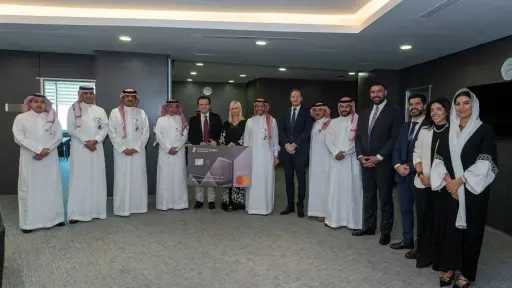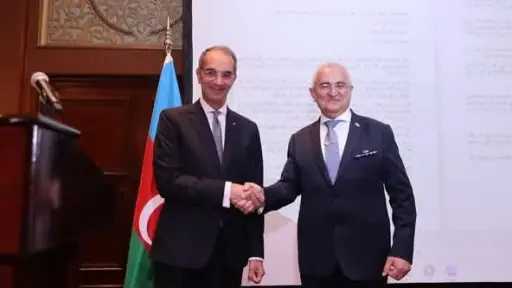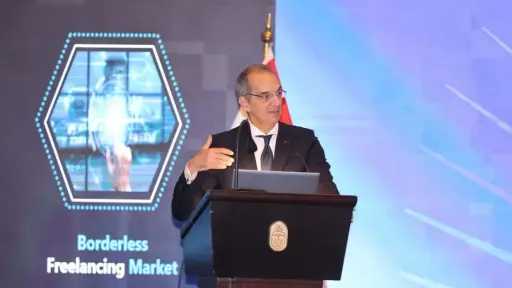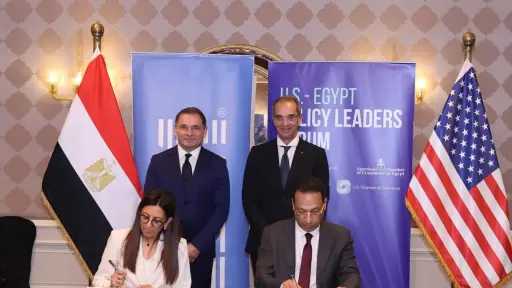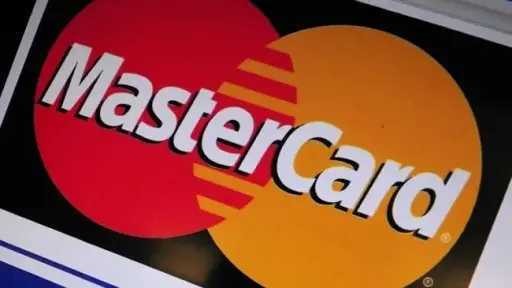Mohamed Assem, CEO of Mastercard, explains the future of payments in Egypt.
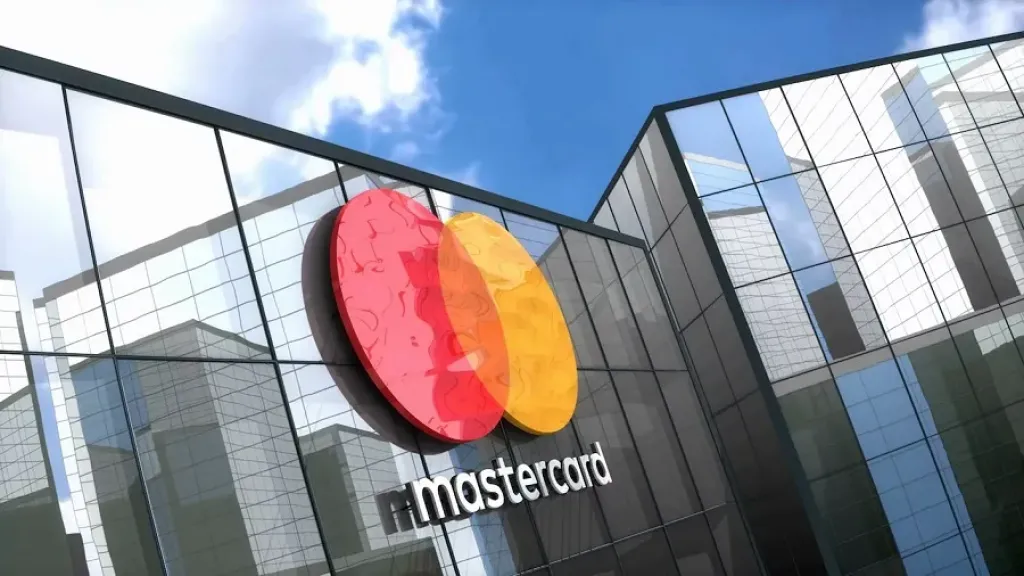
In this in-depth interview, Assem highlights Mastercard’s pivotal role in advancing Egypt’s transition toward a cashless economy, the growing importance of tokenization, and the company’s commitment to empowering consumers and businesses alike with secure, seamless digital payment solutions.
Through these strategic efforts, Mastercard is not only redefining the payments ecosystem but also actively supporting Egypt’s broader goals of financial inclusion and sustainable economic growth. Here’s a closer look at how Mastercard is helping shape the future of finance in Egypt.
- What role does Mastercard play in supporting Egypt's digital transformation?
Egypt is undergoing continuous development, and its digital economy is no exception. It has become an important driver of progress and economic growth across the country. For this momentum to continue, it’s essential to have reliable and inclusive digital payment solutions in place. Over the course of two decades, Mastercard has evolved from being a pioneering technology provider, to a forward-thinking advisor and active business innovation partner to Egypt.
Through initiatives such as payroll cards for government employees, wage digitization for garment factory workers, and social welfare disbursements to women in need, Mastercard has helped drive greater financial access and empowerment. At the same time, the company has pioneered key advancements in Egypt’s payments landscape — from launching the country’s first debit cards and co-developing payment solutions with airlines, to enabling e-commerce payment gateways and digital wallets. Mastercard has also built tailored platforms for small and medium enterprises and implemented tokenization technologies to accelerate the shift from cash to digital payments.
Our collaboration with Egypt’s government, mobile network operators and financial institutions has led to landmark initiatives like establishing a national interoperable mobile payment ecosystem in 2013 — a breakthrough that allowed millions of previously unbanked individuals to access financial services via mobile phones. This system, which continues to serve nearly 40 million Egyptians, has enabled users to conduct secure transactions, pay bills, and transfer money with ease.
Reinforcing its commitment to Egypt, Mastercard established its regional Advisors Client Services Hub in the country to serve both regional and global markets. The hub is staffed by a specialized team delivering innovative solutions across key trends such as Buy Now, Pay Later (BNPL), cybersecurity, and data monetization — further positioning Egypt as a regional financial hub and an attractive destination for strategic investment.
- Mastercard has been at the forefront of driving payment security and innovation. One of the most significant advancements you've supported is tokenization. What is tokenization and how does it integrate with existing payment infrastructure, especially in rural or less developed areas of Egypt?
Tokenization is a cutting-edge technology that prioritizes both security and convenience by replacing sensitive payment data, such as credit card numbers, with a unique identifier known as a ‘token.'
This token can be used for transactions but cannot be reversed to reveal the original information, significantly reducing the risks of fraud and cyberthreats.
The technology also promotes the adoption of digital payment solutions among customers, significantly enhancing the user experience. By enabling merchants to process payments via tablets, smartphones and different wearables, it eliminates the need for customers to carry physical payment cards, while ensuring secure in-app purchases and online transactions. This empowers customers with a seamless, efficient, and highly convenient shopping experience.
With the Central Bank of Egypt’s commitment to driving the nation toward a cashless society, tokenization plays a key role in this vision by enhancing the security of digital payments, promoting financial inclusion, and encouraging the adoption of cutting-edge payment technologies.
- Why is tokenization important for Egypt’s payments ecosystem?
As one of the fastest-growing e-commerce markets in the MENA region, Egypt’s online retail sales are projected to exceed $8 billion by 2025. This growth is fueled by increasing smartphone penetration and internet access, which have made it easier for consumers to embrace digital transactions. However, this rapid expansion also heightens exposure to risks such as cyberattacks and fraud.
The scale of these risks is evident in the rise of cybersecurity breaches and fraud-related incidents. According to the Egyptian National Telecom Regulatory Authority (NTRA), online fraud cases have increased by over 30% in the past two years. This alarming trend highlights the urgent need for robust security measures to protect both consumers and businesses in the digital payments landscape.
To support the secure evolution of Egypt’s payment landscape, Mastercard has collaborated with the Central Bank of Egypt and Egyptian Banks Company to implement the Central Bank’s tokenization regulations. These efforts are part of a broader strategy to build secure digital infrastructure that protects consumers and promotes trust in digital payments.
A recent milestone in this journey was the launch of Apple Pay in Egypt. The service introduces a highly secure and private way to pay — whether in-store, online, or within apps — using biometric authentication methods like facial recognition or fingerprint, along with a one-time-use security code. These enhanced security features make tokenized payments ideal across multiple sectors, including retail, healthcare, transportation, and F&B.
- How does tokenization enhance security and improve the user experience in digital payments?
In today's digital age, where payment information is frequently shared and stored across multiple platforms, tokenization is essential for building consumer trust and safeguarding sensitive data. By replacing real payment card details with a unique token, it ensures that this information is never exposed to potential breaches. Merchants do not store or even see the actual card number, allowing users to complete transactions securely, whether in-store, online, or via mobile apps.
With tokenized transactions, the risk of fraud is significantly reduced. This leads to higher approval rates for transactions, meaning there is a lesser chance of legitimate payments being declined by banks, ensuring a smoother payment experience for consumers.
If a physical card is lost or stolen, tokenization ensures that users can continue to make secure payments using the tokenized version of their card while waiting for a replacement. This continuity in service enhances the user experience, allowing consumers to maintain seamless access to their funds without interruption.
- How does tokenization create value for stakeholders across the digital payments landscape?
Tokenization delivers extensive benefits to merchants, consumers, and issuers, enhancing the entire digital payments ecosystem. Merchants experience increased sales due to faster checkout processes, reduced fraud cases, and fewer abandoned transactions. They also gain access to new payment acceptance options and higher approval rates for authenticated transactions, allowing for more innovative ways to engage with customers and sell products.
For consumers, tokenization ensures account security and uninterrupted payment usage while offering a faster and more seamless user experience. Issuers also benefit significantly, as tokenization reduces fraud risks, minimizes disruptions, and enables the delivery of improved user experiences alongside innovative payment channels. Together, these advantages create a robust, secure, and efficient digital payment environment that fosters trust and drives progress.
- What will be the wider economic impact of tokenization on Egypt?
Tokenization will have a significant economic impact on Egypt, transforming the country's payments ecosystem and contributing to broader economic growth. By enhancing the security and convenience of digital transactions, tokenization will lay the foundation for a more transparent and efficient commerce environment.
One of the broader economic effects of tokenization will be its contribution to the growth of emerging sectors in Egypt, such as the gig economy, subscription-based services, and the gaming industry. These sectors are heavily reliant on digital payments, and tokenization will make it easier for consumers to engage in these new types of commerce with confidence.
Additionally, tokenization empowers consumers by giving them greater control over their data. As more Egyptians become comfortable with digital payments, they will be able to choose how and when to share their information with businesses, creating new avenues for personalized offers, such as credit lines or exclusive deals. This shift could lead to a more dynamic, consumer-centric economy, where businesses and consumers interact in more secure and transparent ways.
As tokenization gains traction, it will attract global payment service providers, boosting foreign investment in the digital payments sector. This influx of investment will not only foster innovation and growth within Egypt’s payment landscape but also positions the nation as a leader in the digital payments space within the MENA region.
- Beyond tokenization, how does Mastercard stay ahead of emerging cybersecurity threats to safeguard Egypt’s digital payment ecosystem?
At Mastercard, we believe that cybersecurity is one of the most important pillars of the digital economy, which is why we continuously invest in the latest technologies to ensure a secure environment for all parties in the digital ecosystem, including governments, banks, merchants, and consumers. We rely on an advanced AI-powered engine to protect more than 125 billion transactions annually from fraud attempts, with exceptional efficiency and speed. This engine allows us to detect cyberattacks, data breaches, and digital fraud before they occur, contributing to strengthening the security of the digital system.
To strengthen our cybersecurity capabilities, Mastercard has strategically acquired several leading companies that align with our vision of securing the digital ecosystem. For instance, RiskRecon plays a pivotal role in accelerating the development of cutting-edge cybersecurity solutions by harnessing the power of AI, data analytics, and automated risk assessments to proactively identify and mitigate risks. Similarly, Ethoca works with over 5,000 issuers and 8,000 merchants worldwide, providing real-time data sharing to combat friendly fraud, and has contributed to reducing chargebacks by up to 80%. Additionally, NuData Security, one of our most valuable assets, operates the world’s largest behavioral network, analyzing billions of events annually to detect patterns and anomalies, helping to minimize verification attacks.
SMEs are often targeted by cybercriminals due to their limited resources for defense or response following a breach. To address this vulnerability, Mastercard offers specialized solutions tailored for SMEs. Mastercard Cyber Secure provides acquirers with a snapshot view of the cyber risks associated with all their merchants, available through a public-facing URL known to Mastercard. This tool empowers businesses to better understand and mitigate the risks they face.
Additionally, our Mastercard Trust Center offers toolkits, insights, and product information designed to help businesses of all sizes protect themselves. Recognizing that each business has unique needs, the Trust Center takes a personalized approach - whether it’s for entrepreneurs just beginning to explore cybersecurity or business owners looking to expand their knowledge and capabilities.


